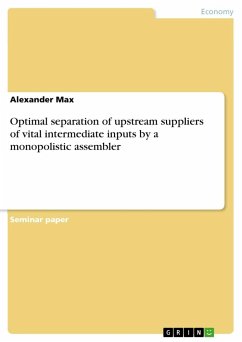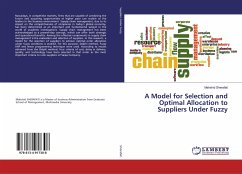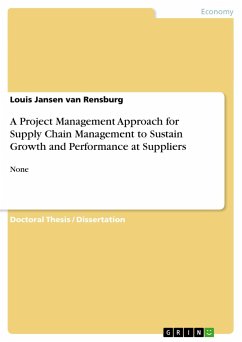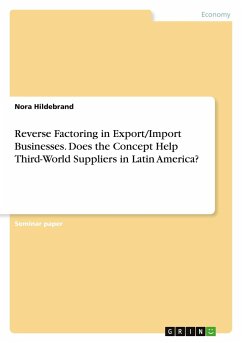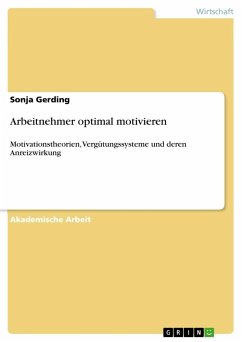Seminar paper from the year 2013 in the subject Business economics - Supply, Production, Logistics, grade: 1,3, Bielefeld University, course: dynamic games in industrial organization, language: English, abstract: In our industrialized world we are confronted with very complex goods. Most of thembecame part of our everyday life like cars, planes and so on. These products consistof several components with high technological requirements to guarantee the qualityof the final product.For example, the production of a high developed plane, as the Airbus A380, needsmany special single components like turbines, wings, etc. These vital intermediategoods could either be purchased by foreign firms or be produced by the downstreamassembler itself, respectively by an owned subunit.A view on the vertical structure among different downstream firms of different products shows that the share in purchased goods from foreign upstream firms varies widely.Since the components are very specifc, the number of upstream firms which produceone vital intermediate input is of course limited. In turn, the specific componentcould be purchased by less, mostly just one, consumer. A turbine manufactured forthe A380, for instance, could not be used by another assembler than Airbus.A downstream firm is faced by deciding whether it should either integrate upstreamunits and become the owner of them or to sell some upstream firms, respectively let them stay independent, with respect to maximize its own profit.To provide an answer to the optimal behavior of an assembler, with respect to in-tegrate or to separate upstream units, I will use a model where the downstream firm is a monopolist in the final good market and needs a fixed number of vital intermediate inputs in fixed proportions to produce the final product. This model is relatively new and not being discussed by many authors. It was first examined in 2008 by Laussel.We will see that there exist two effects that influence the decision ofthe downstream firm. If the independent upstream suppliers have some positive bargaining power, they will sell their produced goods to a price above their costs. That causes the double marginalization effect, because the upstream firms do not account for the effect of its mark-up on the downstream firm. Furthermore an independent supplier, with a positive bargaining power, has a decreasing effect on the prices of the components supplied by the other independent upstream firms, because of the perfect complementary character of the intermediate goods. A high number of independent suppliers yields to relatively low input prices of the particular upstream firms.
Hinweis: Dieser Artikel kann nur an eine deutsche Lieferadresse ausgeliefert werden.
Hinweis: Dieser Artikel kann nur an eine deutsche Lieferadresse ausgeliefert werden.

